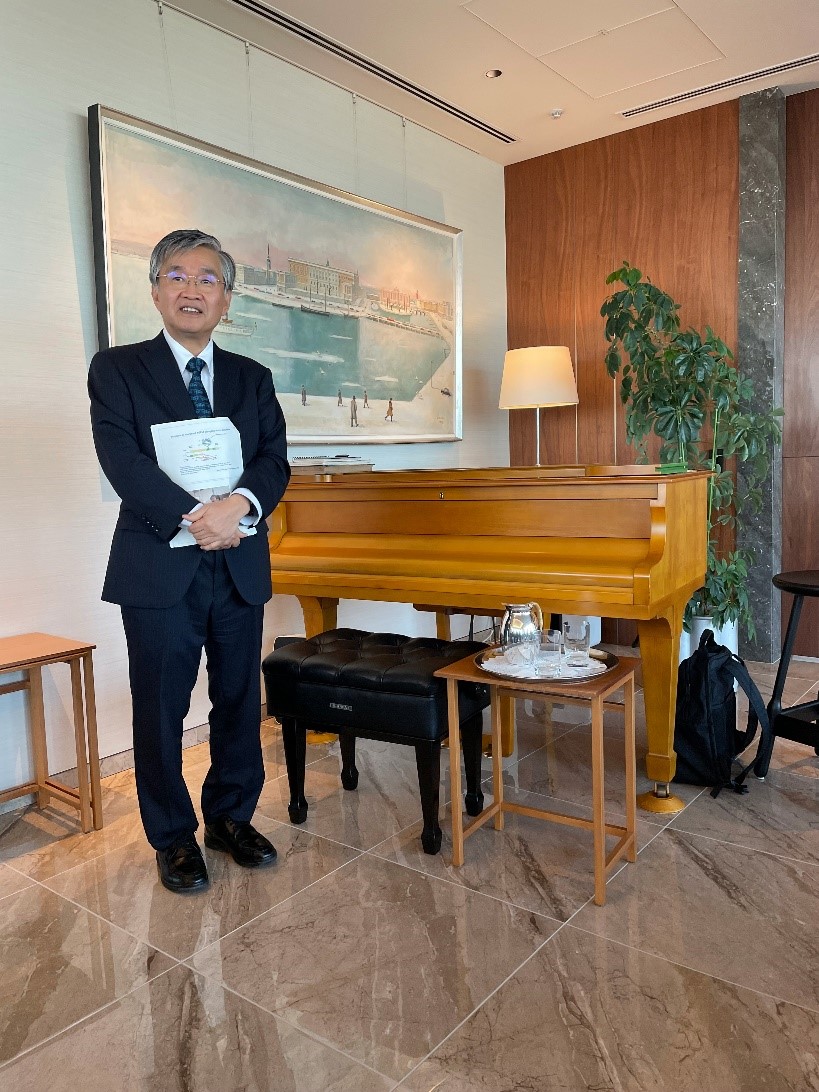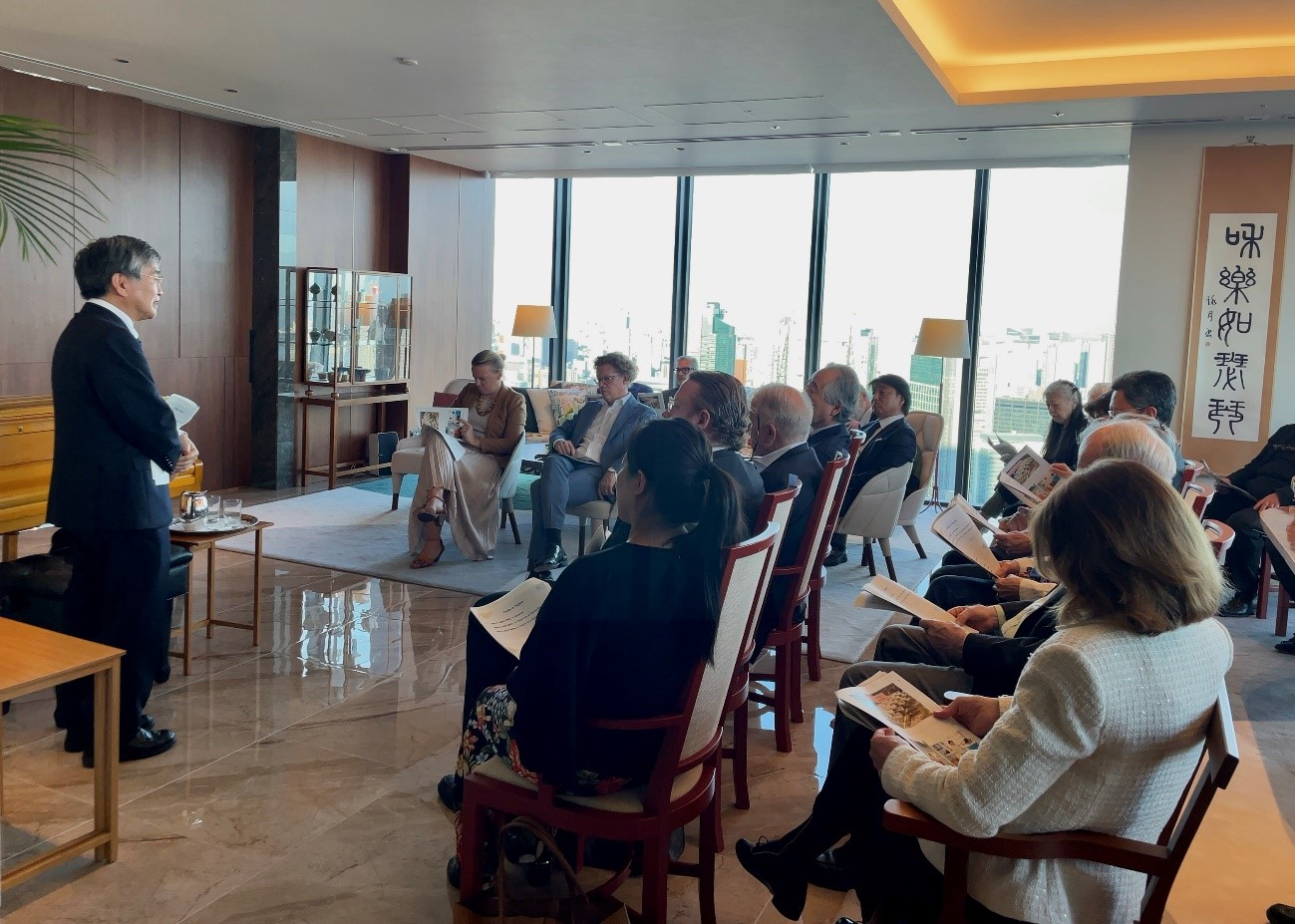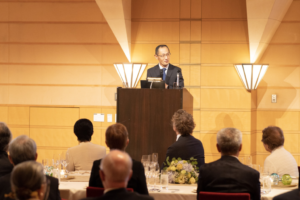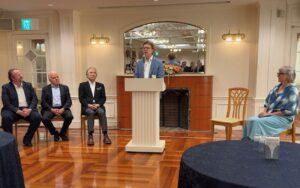On Tuesday, May 14, 2024, the Japan-Sweden Society (JSS), in cooperation with Swedish Ambassador Pereric Högberg, hosted a lecture titled "Sweden and I" by Distinguished University Professor Kohei Miyazono of the University of Tokyo at the ambassador's residence. Approximately thirty JSS members and their guests attended the event. Prof. Miyazono, former Dean of the School of Medicine and Vice President of the university, currently serves as Executive Director of RIKEN and is a Member of the Japan Academy as well.

Prof. Miyazono is renowned for his expertise in cancer research, particularly in signal transduction related to cancer. His association with Sweden began during his studies at the Department of Medical and Physiological Chemistry, Biomedical Center, Uppsala University in 1985, when he was twenty eight years old. His return to the Institute later in his career was a significant decision driven by his ambition to focus on basic research. This decision was particularly momentous as he worked under the supervision of Prof. Carl-Henrik Heldin, who later became Chairman of the Nobel Foundation. Their relationship evolved into a close friendship and professional collaboration.
At the beginning of his lecture, Prof. Miyazono expressed his deep affinity for Sweden, especially for Uppsala, a city well known for its historical figures such as astronomer Celsius, botanist Linnaeus, and physicist Ångström, all associated with its university. His frequent visits to Sweden, facilitated by his connection with Prof. Heldin, underscore his enduring bond with the country.

The lecture further went into specialized topics, with Prof. Miyazono discussing his extensive research on TGF-β, focusing on its role in various cancers and fibrotic diseases like pulmonary fibrosis. Despite significant advancements, translating these findings into clinical applications remains challenging. Motivated to contribute to new diagnostic and therapeutic methods for challenging diseases, Prof. Miyazono shifted his research focus towards glioblastoma, a subject of long-standing interest since his initial tenure in Prof. Heldin's laboratory. This led to the identification of HVEM (herpes virus entry mediator, TNF receptor) as a potential therapeutic target for glioblastoma.
During his presentation, Prof. Miyazono revealed an unexpected discovery to the audience: high-affinity antibodies against human HVEM could be sourced from alpacas. However, bringing this breakthrough to clinical application in Japan posed formidable challenges, requiring collaboration from pharmaceutical companies and financial contributions from venture capital. As a result, Prof. Miyazono decided to return to Sweden once more. Together with Prof. Heldin and other Swedish researchers, he established a startup aimed at drug discovery ventures in the country. Prof. Miyazono concluded his lecture by expressing his strong determination to achieve success and added that he would be visiting Sweden more frequently than ever before to be engaged in this project.


